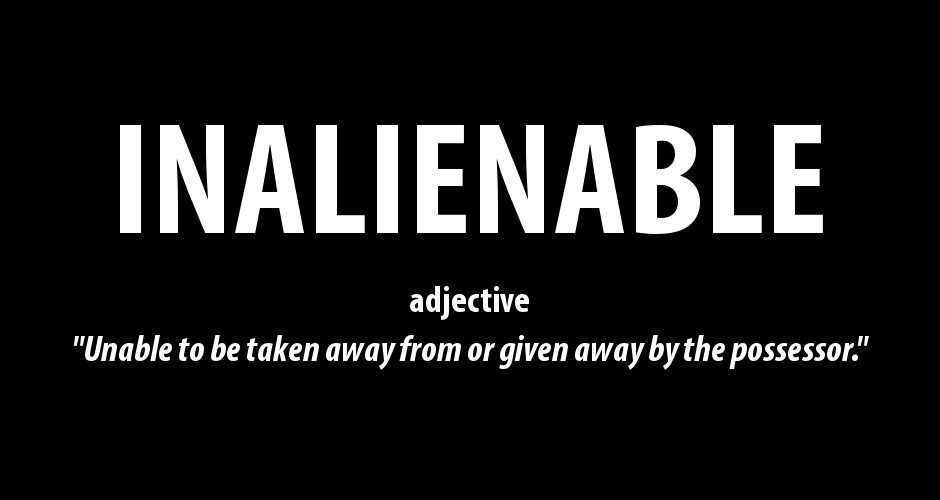The non-aggression principle (NAP) is consistent with the view that rights are inalienable. If we accept that the right to not be aggressed against is inalienable, retribution and punishment are necessarily prohibited. Such a prohibition is consistent with the NAP as these retributive acts are not a direct response to aggression (as is self-defense) but are separate acts of force that one attempts to justify based on the past bad acts of a former aggressor.
Self-defense is not the initiation of force because it is responsive force designed not to harm an aggressor but to terminate his aggression. A trespasser may justifiably be evicted because such eviction is required to terminate his trespass, but he may not be justifiably kidnapped and enslaved. Self-defense is not justified because it is sometimes acceptable to aggress against others but because it is always justified to stop others from aggressing against oneself. This is equally true both when one is resisting initial aggression and when one is resisting retributive aggression.
I would go a step further and suggest that not only is the non-aggression principle consistent with an absolute view of inalienable rights, it actually requires such a view in order to remain consistent. If rights are alienable, it is possible for an individual to exist who does not have rights. If such a condition is possible, the non-aggression principle is no longer sufficient. Instead, we must say that “it is never justified to initiate force against those who have the right to not have force initiated against them.” Thus, the NAP becomes a circular tautology lacking any real meaning or direction.
The NAP, fully understood, says that it is never justified to initiate force because individuals have the [inalienable] right to not have force initiated against them. It’s a universal fact equally applicable to the saint and the sinner. If a past bad act could strip one of their rights, it would be but a matter of time until every individual found themselves divested of their rights and the protection of the NAP. If “punishment” is considered an acceptable exception to the NAP’s prohibition on force initiation than a murderer need not deny his crimes, he must only convince his fellow men that his crime was actually a justified punishment and his victim one of the poor souls separated from their rights. (This is, incidentally, essentially the position which underpins the internal justification expressed by many serial killers.)
Rights which are not inalienable are not really rights at all, they are but temporary protections subject to revocation and violation.
The NAP’s differentiation between the initiation of force and defensive force is not an open-ended permission slip to use violence against anyone who has ever violated the NAP themselves, rather it is a very narrow allowance for the temporary use of minimal force in order to terminate active and ongoing aggression. Self-defense is justified. Retributive aggression is not.





